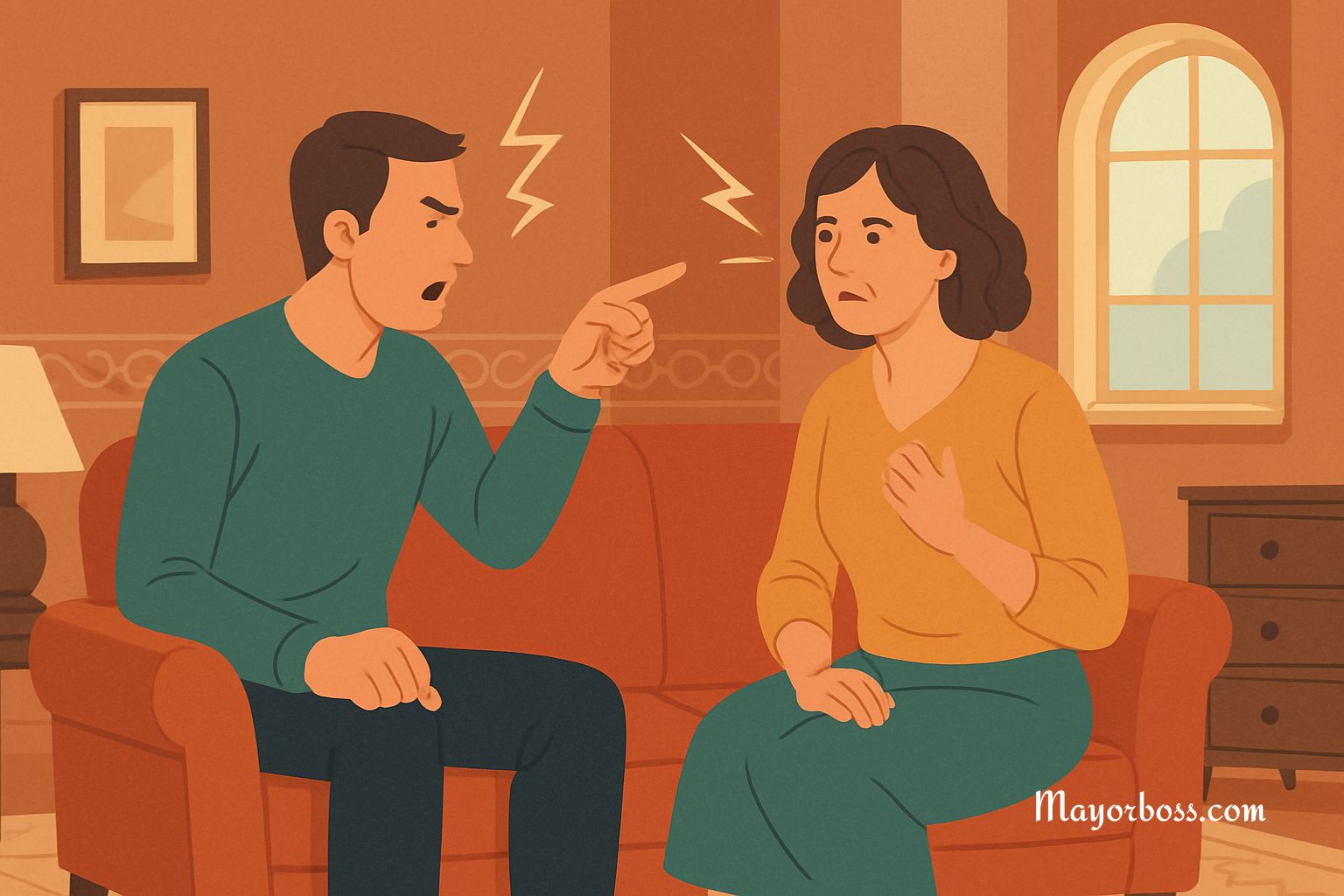Always Arguing with Your Partner? Here’s What It’s Doing to Your Health
Arguments are a normal part of any relationship. But when they happen too often—or turn hostile—they can quietly take a toll on your physical and emotional health. Whether it’s shouting, slamming doors, or giving each other the silent treatment, constant conflict doesn’t just affect your mood. It affects your body too.
Let’s look at how frequent arguing with your partner can impact your health and what you can do to protect yourself.

Increased Stress Levels
When arguments turn intense or repetitive, your body reacts as if it’s facing danger. Your brain signals the release of stress hormones like cortisol and adrenaline. This “fight-or-flight” response increases your heart rate, raises your blood pressure, and tenses your muscles.
Occasional stress is okay. But when arguments happen all the time, your body doesn’t get the chance to relax. This can lead to chronic stress, which affects almost every system in the body.
Weakened Immune System
Long-term stress caused by ongoing arguments can weaken your immune system. You might start getting sick more often—colds, flu, or infections that seem harder to shake.
Studies show that couples who argue often have a slower healing process when injured or ill. This means your body becomes less efficient at fighting off disease and recovering.
Poor Heart Health
Your heart doesn’t like conflict. Constant arguing raises your likelihood of high blood pressure, irregular heartbeats, and even heart disease. In fact, research shows that hostile arguments in relationships are linked to a higher risk of heart attack, especially in men.
Women in tense relationships may also develop a higher risk for clogged arteries or inflammation that affects the heart.
Sleep Problems
Arguments that happen before bedtime or remain unresolved can interfere with your sleep. You may find yourself lying awake, replaying the fight in your head. Or, if you go to bed angry, your body may remain in a stressed state, making it harder to fall or stay asleep.
Over time, poor sleep weakens your concentration, lowers your immune response, and increases your risk for conditions like diabetes and depression.
Digestive Issues
You might not link stomach pain to your relationship problems—but your gut is sensitive to stress. When you argue often, you might develop symptoms like nausea, bloating, constipation, or diarrhea.
Chronic conflict can trigger or worsen irritable bowel syndrome (IBS) and other digestive disorders. That’s because stress hormones affect how your digestive system works.
Increased Risk of Anxiety and Depression
Frequent arguments with a partner can damage your emotional health. You may start feeling anxious, hopeless, or emotionally drained. You might begin to doubt yourself or feel unworthy of love or peace.
When you live in a state of emotional tension, your brain chemistry shifts. This can lead to anxiety or depression over time, especially if the conflict becomes emotionally abusive or controlling.
Shorter Lifespan
This may sound extreme, but it’s true: chronic conflict in relationships has been linked to a shorter life expectancy. One study found that people in high-conflict relationships were more likely to die earlier than those in more peaceful partnerships.
Why? Because frequent stress wears the body down over time—damaging the heart, weakening the immune system, and increasing the risk for chronic disease.
Strain on Brain Function
Constant stress affects memory, decision-making, and emotional control. If you and your partner argue a lot, your brain may struggle to focus or solve problems clearly.
Some people describe feeling mentally “foggy” or “drained” after repeated arguments. That’s because the brain uses a lot of energy managing emotional tension, leaving less capacity for everyday thinking tasks.
How to Protect Your Health in a Conflict-Ridden Relationship
If you’re dealing with frequent arguments, you’re not powerless. Here are some steps you can take to protect your health and improve communication:
1. Identify Patterns
Notice what topics trigger arguments. Are they always about money, parenting, or household chores? Understanding patterns helps you work on solutions instead of repeating the same cycle.
2. Take Breaks During Fights
If a conversation becomes too heated, pause and cool off. Step away for a few minutes, breathe deeply, and come back when you’re calmer. This protects your body and prevents things from escalating.
3. Practice Active Listening
Many arguments stem from misunderstanding. Try to listen without interrupting. Reflect back on what your partner said to make sure you understand. This builds a connection instead of a defense.
4. Use “I” Statements
Say how you feel instead of accusing. For example, say “I feel hurt when we don’t spend time together” instead of “You never make time for me.” This reduces blame and invites dialogue.
5. Seek Professional Help
Therapists can teach communication tools that reduce conflict and build emotional safety. Couples therapy isn’t just for struggling marriages—it can strengthen any relationship.
6. Protect Your Personal Well-being
Focus on your own health even if the relationship feels tense. Eat well, sleep regularly, exercise, and maintain friendships. These habits build emotional strength and reduce stress.
7. Know When It’s Harmful
If arguments include yelling, threats, manipulation, or violence—seek help immediately. No one should live in fear. Emotional and physical abuse harm health in lasting ways. Speak with a counselor or contact a local support service for guidance.
Final Thoughts
Arguing with your partner now and then is normal. But when conflict becomes constant, it doesn’t just affect your relationship—it affects your health too. From heart disease to anxiety, the physical consequences are real.
Healthy relationships don’t mean you never disagree. They mean you know how to manage conflict in a respectful and loving way. If that’s missing, it may be time to learn new communication skills—or, in some cases, make a difficult but necessary decision for your own well-being.
Do you notice any of these signs in your relationship?






